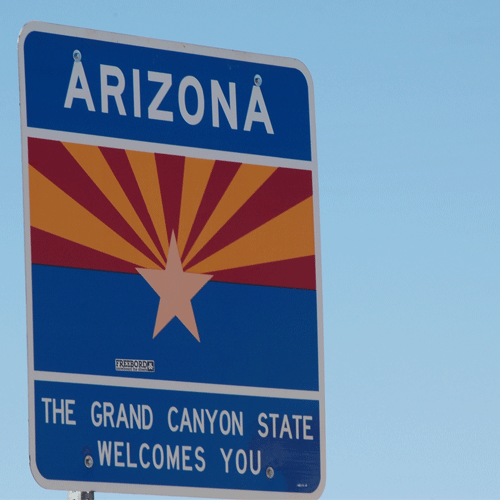Arizona Redistricting Again

On June 29, 2015, the U.S. Supreme Court upheld Arizona’s use of an independent commission to adopt congressional districts. In her majority opinion in Arizona State Legislature v. Arizona Independent Redistricting Commission, 576 U. S. ____ (2015), Justice Ruth Bader Ginsburg acknowledged that partisan gerrymandering has plagued the country since its founding and still has no easy answer.
The Facts of the Case
As more fully detailed in a prior post, Arizona amended its constitution in 2003 to create an Independent Redistricting Commission and relieve the state legislature of the task of redistricting congressional and state legislative districts. After the Redistricting Commission adopted its first plan, the Legislature filed suit, alleging that Arizona’s use of a commission to adopt congressional districts violates the Elections Clause, because it “divests the Legislature of its authority” over redistricting legislation.
The Legal Background
The case revolves around who has the power to redraw Congressional districts. The Elections Clause of the U. S. Constitution provides: “The Times, Places and Manner of holding Elections for Senators and Representatives shall be prescribed in each State by the Legislature thereof; but the Congress may at any time by Law make or alter such Regulations.”
After the U.S. Census is conducted every ten years, states must evaluate their congressional districts and redistribute the population as evenly as possible. While the U.S. Supreme Court mandates that districts be drawn substantially equal in population in accordance with the “one man, one vote principle,” the states are authorized to determine how they redraw district lines. While the task was traditionally delegated to state legislatures, several states have formed redistricting commissions in an effort to remove partisan politics from the process.
The Majority Decision
The Court upheld Arizona redistricting process by a vote of 5-4. Justices Anthony Kennedy, Stephen Breyer, Sonia Sotomayor, and Elena Kagan joined Justice Ginsburg’s majority opinion.
The majority held that the U.S. Constitution permits Arizona’s use of a commission to adopt congressional districts, noting that the dominant purpose of the Elections Clause was to “empower Congress to override state election rules, not to restrict the way States enact legislation.”
In reaching its decision, the majority concluded that the term “legislature” should be interpreted as “the power that makes laws,” which is held both by the people and the legislature under Arizona’s initiative law.
“The Framers may not have imagined the modern initiative process in which the people’s legislative power is coextensive with the state legislature’s authority, but the invention of the initiative was in full harmony with the Constitution’s conception of the people as the font of governmental power,” Justice Ginsburg further explained. “It would thus be perverse to interpret ‘Legislature’ in the Elections Clause to exclude lawmaking by the people, particularly when such lawmaking is intended to advance the prospect that Members of Congress will in fact be ‘chosen . . . by the People of the several States,’ Art. I, §2.”
The Dissent
Chief Justice John Roberts filed a dissenting opinion, in which Justices Antonin Scalia, Samuel Alito, and Clarence Thomas joined. In his dissent, the Chief Justice criticized the majority’s interpretation of the term “legislature,” arguing that it did not comport to the meaning of the term at the time the Constitution was written. He further noted that the Seventeenth Amendment was added to empower citizens, rather than the state legislature, to elect members of the U.S. Senate. “What chumps,” he sarcastically remarked. “Didn’t they realize that all they had to do was interpret the constitutional term ‘the Legislature’ to mean ‘the people’?”
Previous Articles
SCOTUS Decision in Bowe v. United States Is First of the 2026 Term
by DONALD SCARINCI on February 5, 2026
In Bowe v. United States, 607 U.S. ___ (2026), the U.S. Supreme Court held that Title 28 U.S.C. § ...
SCOTUS Rules State Can’t Immunize Parties from Federal Civil Liability
by DONALD SCARINCI on January 29, 2026
In John Doe v. Dynamic Physical Therapy, LLC, 607 U.S. ____ (2025) the U.S. Supreme Court held that...
Supreme Court to Address Racial Discrimination in Jury Selection
by DONALD SCARINCI onWhile the U.S. Supreme Court has concluded oral arguments for the year, it continues to add cases t...
The Amendments
-
Amendment1
- Establishment ClauseFree Exercise Clause
- Freedom of Speech
- Freedoms of Press
- Freedom of Assembly, and Petitition
-
Amendment2
- The Right to Bear Arms
-
Amendment4
- Unreasonable Searches and Seizures
-
Amendment5
- Due Process
- Eminent Domain
- Rights of Criminal Defendants
Preamble to the Bill of Rights
Congress of the United States begun and held at the City of New-York, on Wednesday the fourth of March, one thousand seven hundred and eighty nine.
THE Conventions of a number of the States, having at the time of their adopting the Constitution, expressed a desire, in order to prevent misconstruction or abuse of its powers, that further declaratory and restrictive clauses should be added: And as extending the ground of public confidence in the Government, will best ensure the beneficent ends of its institution.





